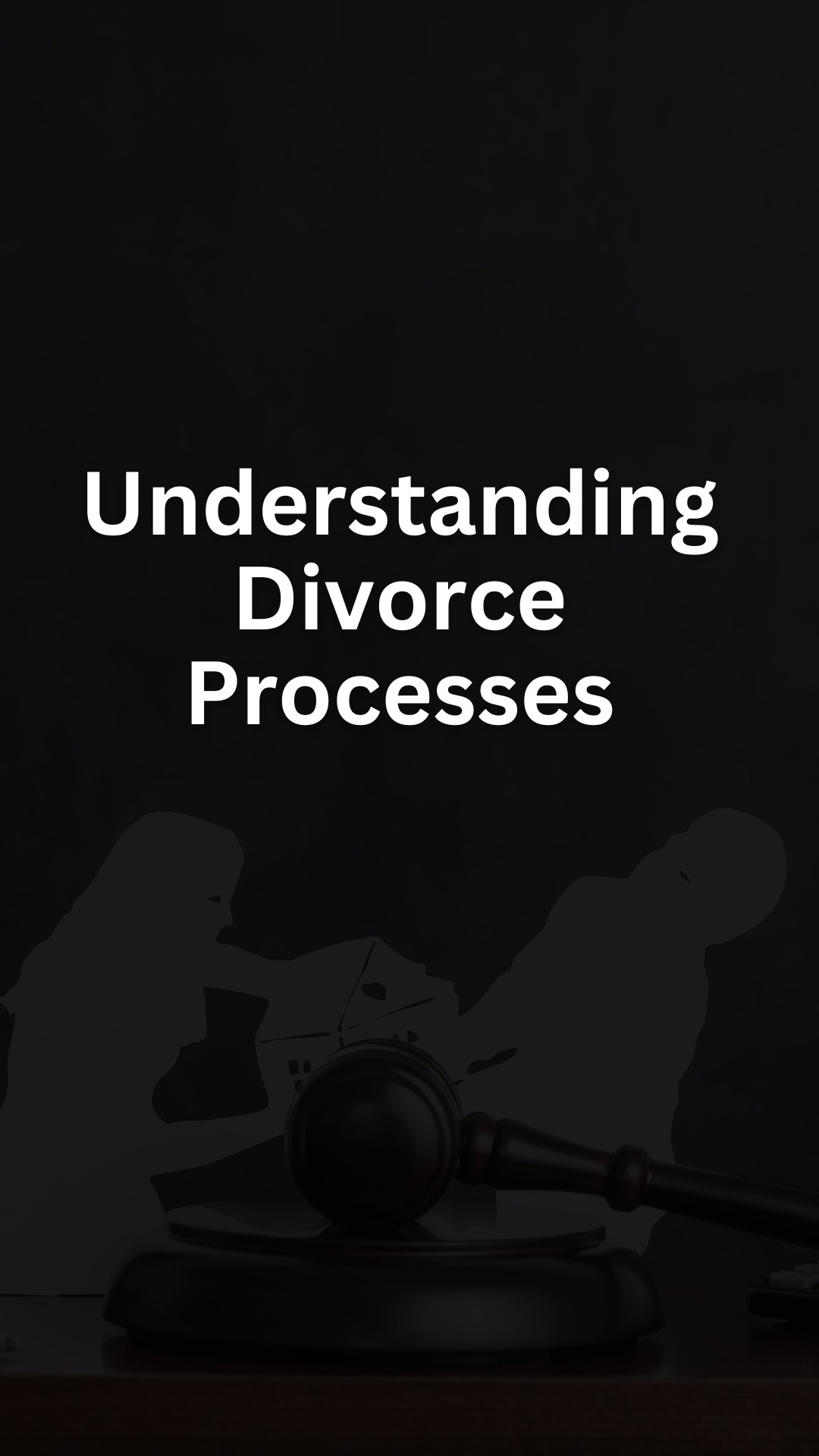Divorce can be a tough journey, especially when you don’t have a support system to lean on. You might feel alone and overwhelmed, but there are ways to navigate this difficult time.
The key to handling divorce on your own is to take small steps to rebuild your life and look for new sources of support.
Consider seeking professional help, like a therapist or counselor. They can offer guidance and a safe space to express your feelings.
Building new connections, even online, can also make a big difference.
Finding local support groups, online communities, or even reconnecting with old friends can provide some much-needed emotional support.
It’s crucial to take care of yourself both mentally and physically.
Focus on self-care routines that help you feel grounded and calm.
Whether it’s a daily walk, reading, or learning a new hobby, these small acts can bring comfort and a sense of normalcy during this challenging time.
Understanding Divorce Processes

When dealing with divorce, there are several important steps to navigate.
Key aspects include understanding legal implications and managing financial matters effectively.
Legal Considerations
First, you need to understand the legal requirements for filing for divorce. This includes residency requirements and grounds for divorce, which could be fault-based or no-fault.
You will need to fill out and file divorce papers with the court. These documents typically include petitions and summons.
Seeking legal advice from a lawyer can be beneficial, especially if children or property are involved.
The court will expect both parties to exchange financial information and other important documents. This disclosure is crucial for fair decisions regarding assets and custody.
Attending court hearings and possibly mediation sessions is part of the process.
These are opportunities to reach agreements on various matters. Familiarize yourself with court procedures to avoid unnecessary stress.
Financial Proceedings
Divorce can impact your financial situation significantly. One major aspect is the division of property and debt. States have different laws regarding this, such as community property or equitable distribution.
You may need to arrange for spousal support (alimony). This support is based on factors like the length of the marriage and each person’s financial situation.
Calculations for alimony can be complex, so understanding the basics will help.
Child support is also a key consideration if you have children. The amount is determined based on income, custody arrangements, and the child’s needs. Ensure that all financial documents are accurate to avoid disputes.
Be prepared to make changes to your financial plans, budgets, and accounts.
Closing joint accounts and opening individual ones can help in managing your finances more efficiently. Seeking advice from a financial planner might be a good step.
Emotional Coping Strategies

When facing a divorce without a support system, finding ways to manage your emotions is crucial. This part will cover self-care techniques and methods to build emotional resilience, which can help you navigate this challenging time.
Self-Care Techniques
Taking care of yourself is essential during a divorce. Start with basic habits like sleeping well, eating nutritious food, and exercising.
Create a daily routine that includes activities you enjoy.
Reading a book, taking a bath, or watching a favorite show can provide comfort.
Mindfulness and meditation can also be very helpful. Spend a few minutes each day focusing on your breathing or practicing gratitude.
Journaling is another way to process your feelings. Write down your thoughts and emotions to release some of the stress.
Seek out activities that engage your senses, like listening to calming music, baking, or gardening.
These can distract you from negative thoughts and help you feel more grounded.
Emotional Resilience Building
Building emotional resilience will help you cope better with the stress of divorce.
Begin by setting small, achievable goals. This can give you a sense of accomplishment and boost your confidence.
Practice positive self-talk. Replace negative thoughts with encouraging and kind words to yourself.
Connecting with community resources can also be beneficial.
Look for local groups, online forums, or therapy services where you can find guidance and support.
Learn new skills or hobbies. This not only distracts but also builds your sense of competence.
Developing a strong mindset involves recognizing that setbacks are part of life.
Accept that it’s okay to feel sad or angry and that these feelings are temporary.
Building a Support Network

During a divorce, it’s critical to find people who can help you through tough times. Even if you feel alone now, there are ways to build a strong support network.
Connecting with Friends
Start by reaching out to friends. Share what you’re going through with people you trust.
Good friends can offer emotional support, listen to your problems, and give helpful advice.
Sometimes, friends might not know you need help until you ask. Don’t be afraid to be open and honest about your needs.
It’s an important step in building a reliable support system.
Try setting up regular meet-ups or phone calls.
Staying connected will help you feel less isolated and more understood. Even a short message or a coffee date can make a big difference in your mood and outlook.
Finding Community Resources
Look for local community resources designed to help with divorce. Many areas have support groups, counseling services, and legal aid.
Public libraries, community centers, and local government websites can provide information on available services.
Support groups can be very helpful. You will meet people who are in similar situations, which can make you feel less alone.
Sharing experiences and advice with others can give you new perspectives and coping strategies.
Also, consider online resources.
Many websites and forums are dedicated to helping people through divorce. These can offer advice, forums for discussion, and connections to legal and emotional support.
Handling Logistics Alone

Without a support system, managing household responsibilities and solo parenting can be daunting. Here are some strategies to help navigate these challenges.
Managing Household Responsibilities
When you are alone, keeping up with household chores can be tough.
Make a daily schedule to stay organized. Prioritize tasks by urgency.
Consider breaking down bigger chores into smaller tasks to avoid feeling overwhelmed.
Using a planner or digital calendar can help you track responsibilities and deadlines.
Set reminders for things like bill payments and maintenance chores.
If possible, automate tasks like grocery delivery and online bill payments to save time.
It’s essential to ask for help when needed, even if it’s from neighbors or hiring help for cleaning or repairs.
Simplifying your home and minimizing clutter can also make upkeep more manageable.
Solo Parenting Challenges
Raising children on your own is one of the hardest parts of handling logistics alone.
Establishing a routine can provide stability for both you and the kids.
Consistent schedules for meals, homework, and bedtime can make day-to-day life more predictable and less stressful.
Time management is key.
Use evenings or early mornings to prepare for the day ahead.
Pack lunches, lay out clothes, and prepare breakfast the night before.
Finding support groups or community activities can be very helpful.
Look for local resources like parenting classes, and childcare co-ops, or consider forming a playgroup with other solo parents.
Communication with your children about the changes they might experience is important.
Be honest but optimistic, reassuring them that you are there for them.
Encourage open conversation and be patient with their feelings and reactions.
Seeking Professional Help

When going through a divorce with no support system, it’s important to look for professional help. Counselors and lawyers can provide the emotional and legal support you need.
Counseling and Therapy Options
Counseling offers a safe space to express your feelings. A therapist can help you navigate the emotional challenges of divorce.
Look for a licensed therapist who specializes in divorce or family issues.
Many counselors offer sliding scale fees, or you might find community centers that provide low-cost options.
Online therapy is another option.
Platforms like BetterHelp and Talkspace let you connect with a counselor from home.
This can be convenient if you have a busy schedule. Check if they have therapists who specialize in divorce.
Legal Advice and Representation
Seeking legal advice ensures you understand your rights and obligations. A lawyer can represent you in court and help with paperwork.
If you cannot afford a lawyer, look for legal aid services in your area. These services offer free or low-cost legal help to those in need.
Make sure to find an attorney who specializes in family law.
This area of law covers divorce, custody, and related issues.
An expert will know the latest laws and how they apply to your case.
Some law firms even offer free consultations, helping you understand your options without any initial cost.
Financial Independence

Gaining financial independence after a divorce can be challenging. You’ll need to focus on carefully managing your budget and taking steps to rebuild your financial security.
Budgeting Post-Divorce
After a divorce, your income and expenses might change significantly.
Start by listing all your current income sources, including your job, alimony, and child support.
Create a detailed budget that includes:
- Housing: Rent or mortgage, utilities
- Food: Groceries, dining out
- Transportation: Car payments, gas, insurance
- Debt Repayment: Credit cards, loans
- Savings: Emergency fund, retirement
Track your spending closely and avoid unnecessary purchases.
Use apps or spreadsheets to help manage and stick to your budget.
Prioritize essentials over luxuries to stay on track.
Rebuilding Financial Security
To rebuild your financial security, start by assessing your current financial situation. Check your credit score and report any errors.
Save for an emergency fund to cover unexpected expenses.
Consider these steps:
- Increase Income: Look for additional work or side gigs
- Reduce Debt: Pay off high-interest debt first
- Invest: Open a retirement account if you don’t have one
Be patient and stay consistent with your financial goals.
It may take time, but with careful planning, you can achieve financial independence.
Navigating Social Situations

When going through a divorce, social situations can be tricky. It’s important to understand how to handle mutual friendships and dating.
Maintaining Mutual Friendships
Divorce often puts mutual friends in a tough spot. You might feel like you’re losing them too.
Communication is key. Talk to your friends about how they can support you without feeling caught in the middle.
Stay neutral and avoid bad-mouthing your ex.
You may need to accept that some friends will naturally gravitate towards your ex. That’s okay.
Focus on building new connections and rekindling old friendships.
Activities with friends can help too. Plan outings, join clubs, or attend events where you can meet new people.
Dating After Divorce
Entering the dating scene after a divorce can be daunting. It’s important to take things slowly and listen to your own needs.
Be honest with potential partners about your situation. Honesty builds trust and sets the tone for a healthy relationship.
Use this opportunity to explore what you want in a partner.
Don’t rush into anything just because you feel lonely.
It’s okay to lean on online dating platforms or join social groups to meet new people.
Keep an open mind and enjoy getting to know different personalities.
Advocating for Your Needs

When going through a divorce without a support system, it’s crucial to advocate for yourself. This involves practicing clear communication and setting personal boundaries to protect your wellbeing.
Clear Communication Techniques
Using effective communication can help you express your needs.
Be direct and specific about what you need and how you feel. Avoid vague statements.
It’s helpful to use “I” statements to focus on your perspective. For example, say “I need help with…” instead of “You never help me.”
This reduces defensiveness and fosters understanding.
Listening is also key. Pay attention to what others say without interrupting.
Reflect back what you hear to ensure clarity. This can resolve misunderstandings and create a more productive dialogue.
Writing down your thoughts before speaking can organize your ideas.
Practice conversations in advance if you’re nervous. Role-playing with a trusted friend, if possible, can boost your confidence.
Setting Personal Boundaries
Setting boundaries protects your emotional and mental health.
Clearly define what behaviors are acceptable. Communicate these boundaries assertively.
For example, let others know if you need time alone to process emotions or if certain topics are off-limits during conversations.
Consistently uphold your boundaries.
If someone crosses a line, calmly remind them of your limits.
Use phrases like, “I need you to respect my space right now,” or “This topic isn’t up for discussion.”
Self-care is essential.
Schedule regular breaks and activities that help you relax.
This maintains your energy and focus during challenging times.
Don’t be afraid to seek professional help if you feel overwhelmed.
A counselor can offer strategies to manage stress and reinforce your boundaries.
Planning for the Future

Planning for your new life after divorce involves setting personal goals and thinking about the next phase of your life.
Stay focused and practical to make the most out of this new chapter.
Personal Growth Opportunities
Divorce can be a chance to explore areas of personal development that you may have neglected.
Focus on self-care.
Activities like joining a gym, picking up a new hobby, or even getting regular sleep can make a big difference.
Education is another path to growth.
Take a course to learn something new or advance in your career.
Therapy or support groups can also be crucial.
They help you process emotions and offer coping strategies for your mental well-being.
Life After Divorce
After divorce, it’s important to create a vision for your life moving forward.
Financial planning is essential.
Update your budget to reflect your new situation, and consider meeting with a financial advisor.
Social life should not be ignored.
Build a new support network through clubs, groups, or new friends.
Reevaluate your career goals.
You might want to go back to school, switch careers, or take up part-time work to fit your new lifestyle.
Resources and Useful Tools

When you’re dealing with a divorce on your own, having access to the right resources can make a big difference.
Books and Websites
Books can provide valuable insight and guidance.
Look for titles like “Divorce for Dummies” or “The Divorce Survival Guide”.
Websites such as DivorceCare.org offer support forums and articles.
Counselors and Therapists
Professional help can be crucial.
Many therapists specialize in divorce.
You can find licensed counselors through directories like PsychologyToday.com and BetterHelp.com.
Legal Aid Services
If legal fees are too much, you can look into legal aid services.
Many states offer low-cost or free legal advice for those in need.
Websites like LegalAid.org can help you find local services.
Support Groups
Support groups provide a sense of community.
Check out local listings or online platforms like Meetup.com. Sharing your experience with others can be comforting.
Hotlines
If you’re feeling overwhelmed, hotlines can offer immediate help.
Numbers such as the National Suicide Prevention Lifeline (1-800-273-8255) are available 24/7.
Online Courses and Webinars
Many websites offer courses on coping with divorce.
Sites like Udemy.com and Coursera.org have classes covering emotional and financial aspects of divorce.
Financial Advisors
Divorce can strain your finances.
A financial advisor can help you plan.
Websites like NAPFA.org list certified planners who can offer advice tailored to your situation.
Frequently Asked Questions

When going through a divorce without much support, it’s normal to feel lost and overwhelmed. Here, we’ll answer some common questions to help you navigate this difficult time.
How can I cope with the emotional challenges of divorce when I feel alone?
Finding ways to manage stress and sadness is important.
Consider joining online support groups where you can share your experiences.
Exercise can also help improve your mood.
Focus on self-care by doing things that make you happy.
What strategies are available for accepting a divorce I didn’t want?
It’s tough to accept something you didn’t want.
Take time to grieve the relationship.
Talk to a therapist who can help you process your feelings.
Journaling your thoughts can also be a useful way to organize your emotions.
How do men handle their emotions during the divorce process?
Men might struggle to express their feelings openly.
Try talking to friends or a therapist about how you feel.
Staying active through sports or hobbies can be a healthy outlet for your emotions.
What approaches can I take to deal with separation when children are involved?
Maintaining a routine is important for your kids.
Be honest with them about what’s happening, but keep explanations simple.
Encourage them to express their feelings and reassure them that both parents still love them.
What are some effective ways to move on from a long-term marriage after divorce?
Rebuilding your life can be challenging.
Start by setting new goals for yourself, both big and small.
Seek new hobbies or interests that you’ve always wanted to try.
Connecting with new people can also help you create a new social circle.
What financial steps should I take to establish independence post-divorce?
Start by creating a budget that reflects your new financial situation.
Open a separate bank account if you haven’t already.
Consider consulting a financial advisor to help you plan for your future and make smart investments.